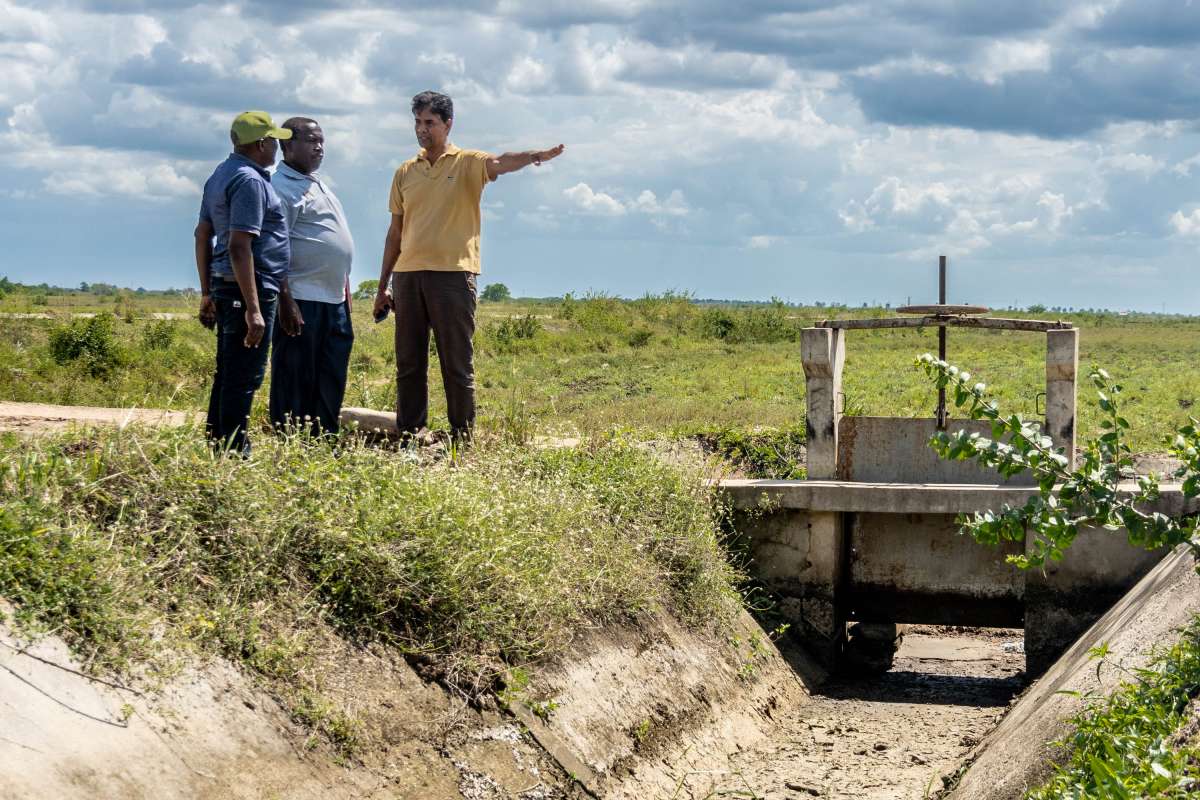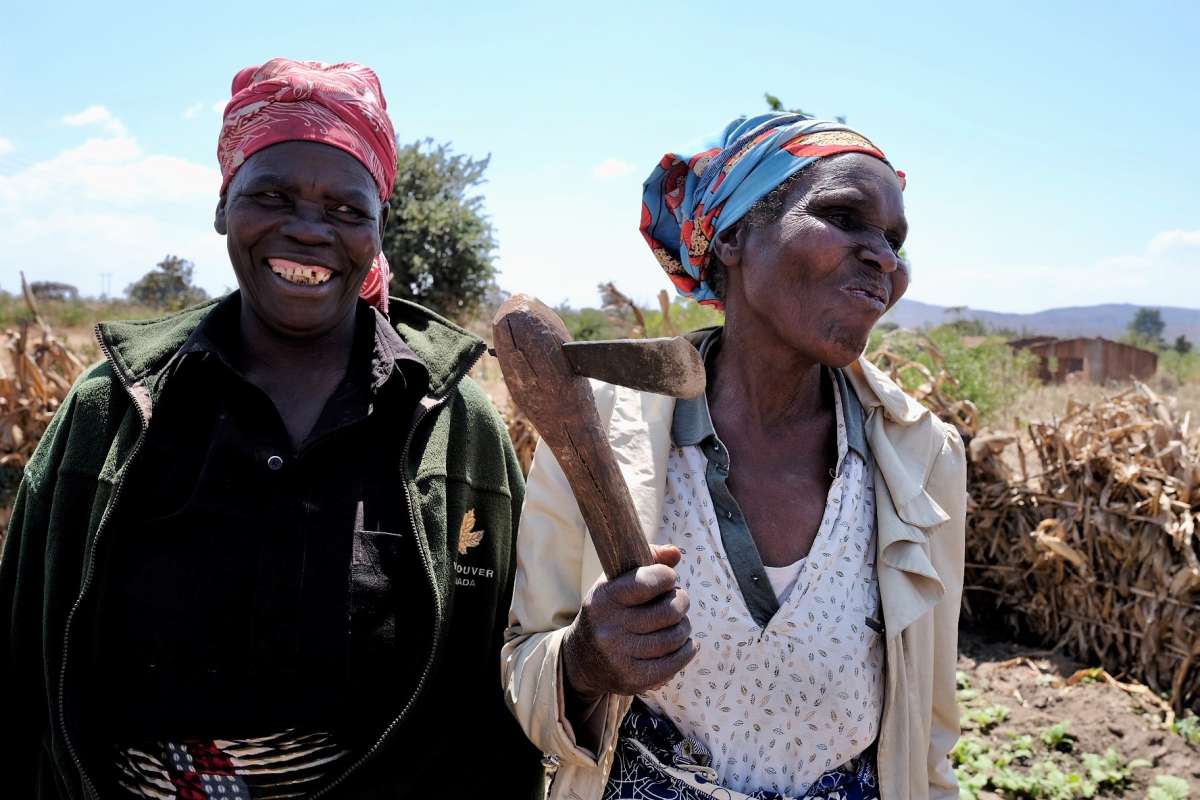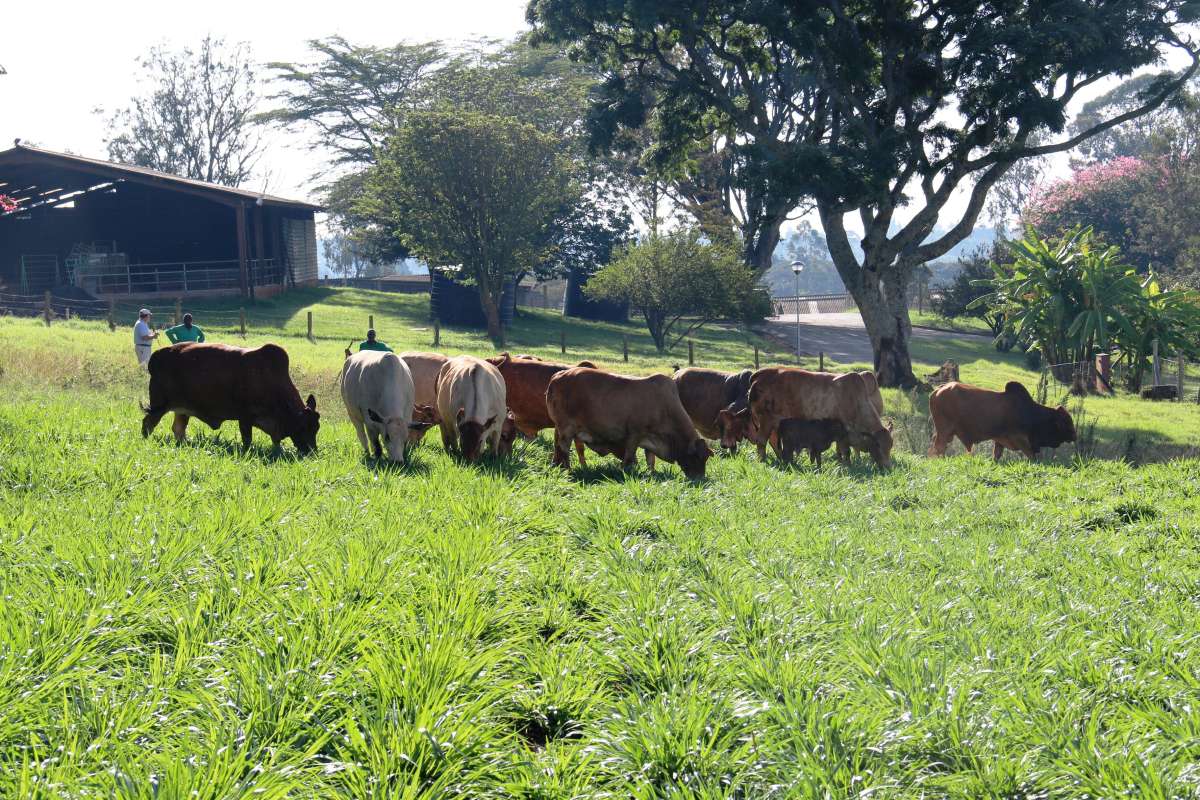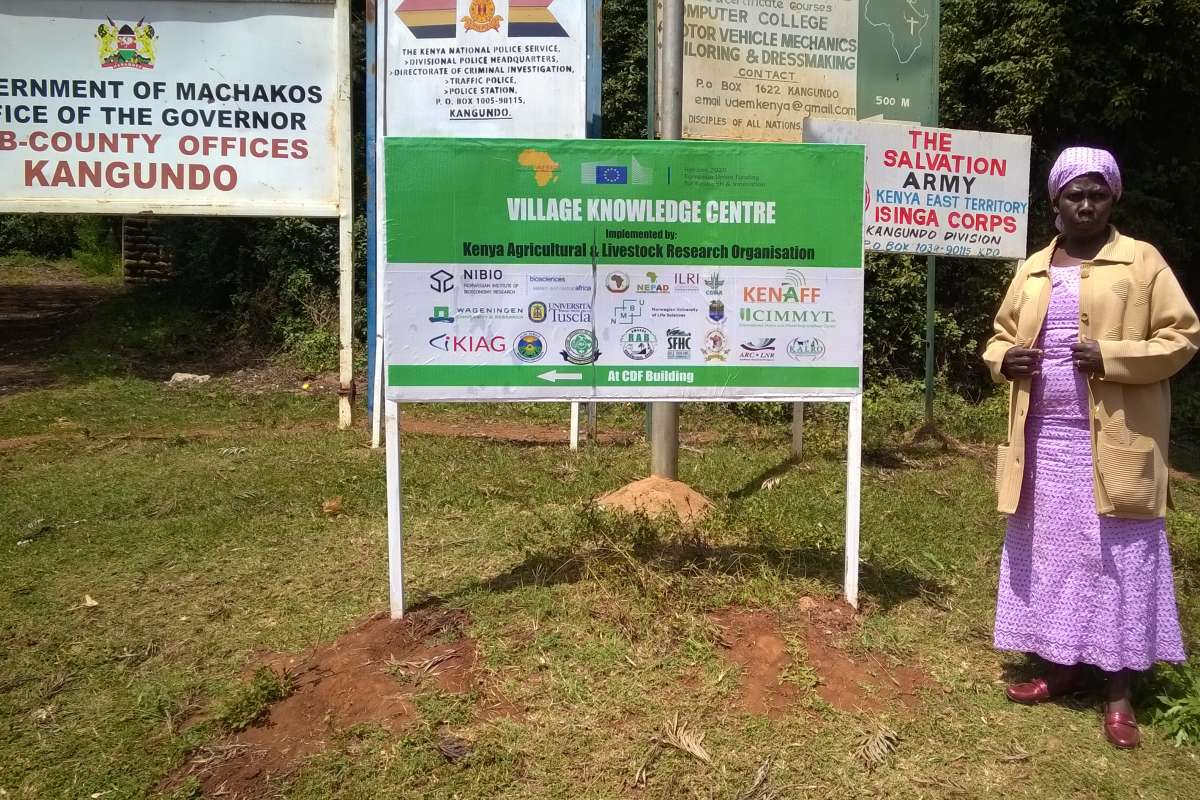Strengthening Tanzanian agriculture through sustainable soil management
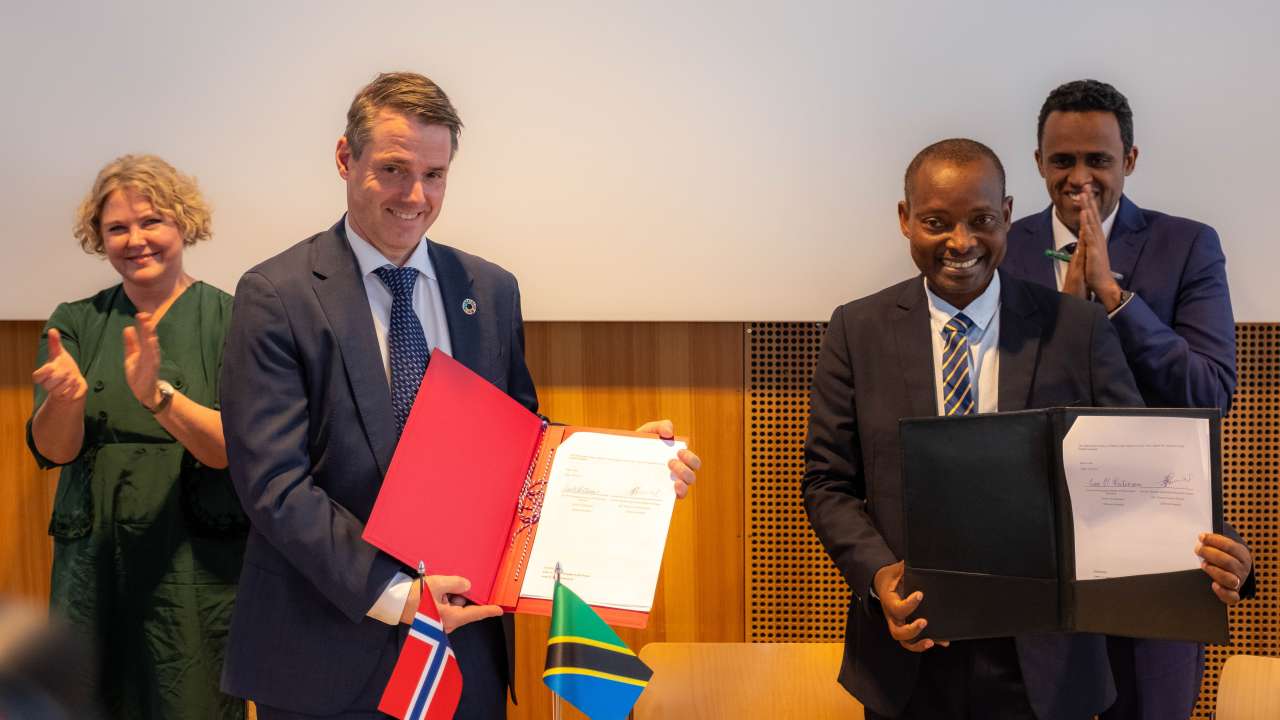
On February 14th, NIBIO and TARI signed the ClimaSoilHealth project agreement at Klimahuset in Oslo, in the presence of Tanzanian and Norwegian government officials. From left to right, Norwegian Minister of International Development Anne Beathe Tvinnereim, Director General NIBIO Ivar Horneland Kristensen, Director General TARI Dr Thomas Bwana, and Tanzanian Minister of Agriculture Hussein Mohamed Bashe. Photo: Ragnar Våga Pedersen
On the 14th of February, NIBIO and the Tanzanian Agricultural Research Institute (TARI) signed an agreement in the presence of Tanzanian and Norwegian government officials at Klimahuset in Oslo, Norway. The new project ClimaSoilHealth aims to enhance Tanzania’s ability to manage soil health in a sustainable way, thus improving the livelihoods of the country’s many smallholders.
Healthy soils offer vital ecosystem services such as increased productivity and biodiversity conservation. Soils also act as major carbon reservoirs, playing a crucial role in slowing down climate change effects and enhancing resilience to extreme weather events.
Despite being indispensable, soils are fragile and non-renewable resources, requiring careful management to prevent degradation for future generations.
In Tanzania, where 70 percent of the agriculture is driven by smallholder farmers, soil fertility depletion, erosion, soil acidity and high salinity levels threaten national food security. These challenges are exacerbated by inappropriate farming practices and/or approaches aggravated by climate change and land use changes. Furthermore, smallholder farmers often lack the knowledge, technology and funding to improve soil conditions and minimise environmental impact.
In the project ClimaSoilHealth, NIBIO and TARI will collaborate to enhance institutional capacity to manage soils sustainably. By doing so, the project aims to contribute directly to increased agricultural productivity and nutrition while mitigating the impact of climate change.
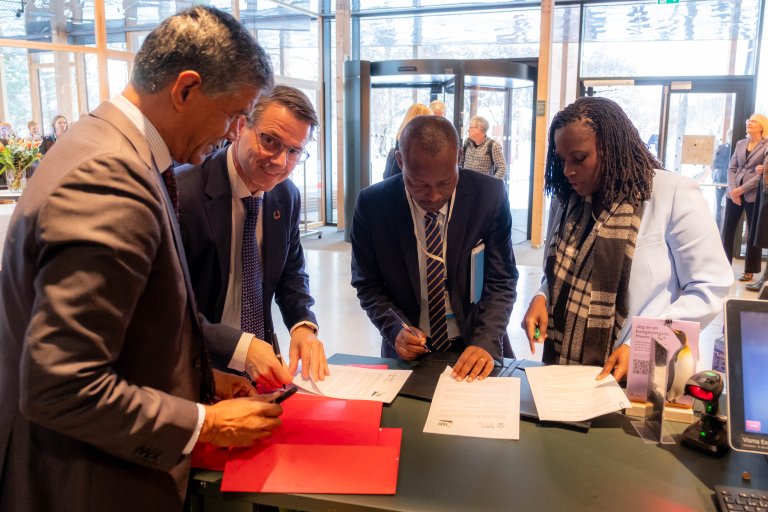
Bridging the gap between policy and reality
On February the 14th, the project agreement between the two institutions was signed at Klimahuset in Oslo, in the presence of Tanzanian President Ms Samia Suluhu Hassan, Tanzanian Minister of Agriculture Hon. Hussein Mohamed Bashe, and Norwegian Minister of International Development, Ms Anne Beathe Tvinnereim.
Speaking at the ceremony, Agricultural Minister Mr Bashe stressed the importance of bridging the gap between political discussions at conferences and the tangible impact on the lives of the poor.
He further added that Norway's contribution to training and capacity building is appreciated, but more technology, capital, and financing is needed to empower farmers.
“Another crucial step is balance in food trade, acknowledging each country's strengths and ensuring fair trade practices that value farmers' contributions,” he said. “By taking these steps, we can genuinely address the pressing global problem at hand."
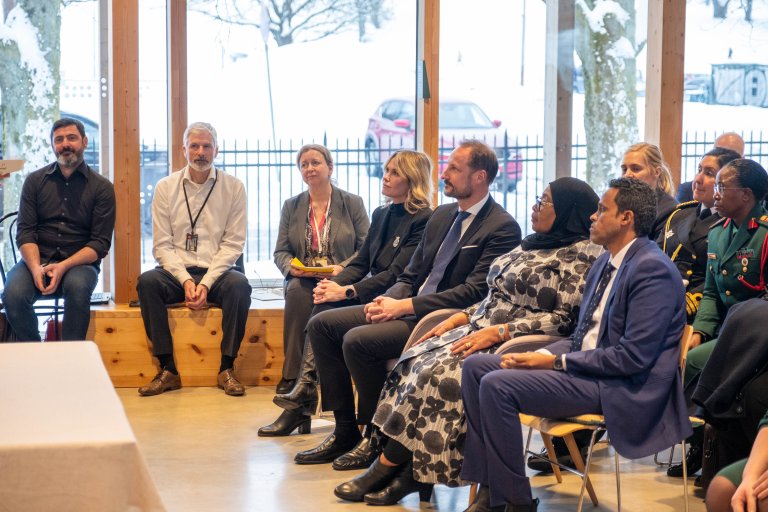
Capacity development is key
ClimaSoilHealth will work towards improving the institutional capacity on sustainable soil health restoration in Tanzania that will help strengthen adaptation and mitigation to climate change and thereby increase food security.
The goal is to enhance the country's ability to withstand the effects of climate change and actively contribute to the global effort of reducing greenhouse gas emissions.
“As far as capacity development is concerned, the main challenges include weak coordination, conflicting interests, lack of innovative models and insufficient funds,” says project coordinator from NIBIO, Dr Udaya Sekhar Nagothu.
“Maintaining and restoring soil health is a long-term endeavour by all concerned actors. It requires transformative changes by all sectors of society, across all types of land uses at scales in a joined-up thinking. We need to enhance collaboration and learning by bridging knowledge gaps and encouraging stakeholders to share their insights.”
ClimaSoilHealth’s partners include local government authorities (LGAs), Non-Governmental organisations (NGOs) and farmers training centres that will be involved in training lead farmers on sustainable soil management. The trained farmers will be vital in the further farmer-to-farmer knowledge exchange.
“The expected outcomes of our project include improved agricultural productivity, enhanced livelihoods for smallholders, and a reduction in negative environmental impacts. The collaboration between TARI and NIBIO is a key part of this effort, fostering long-term partnerships for research and innovation in soil health management,” Dr Nagothu says.
Contacts
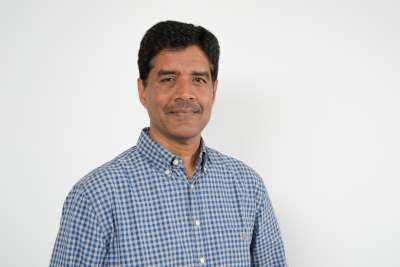
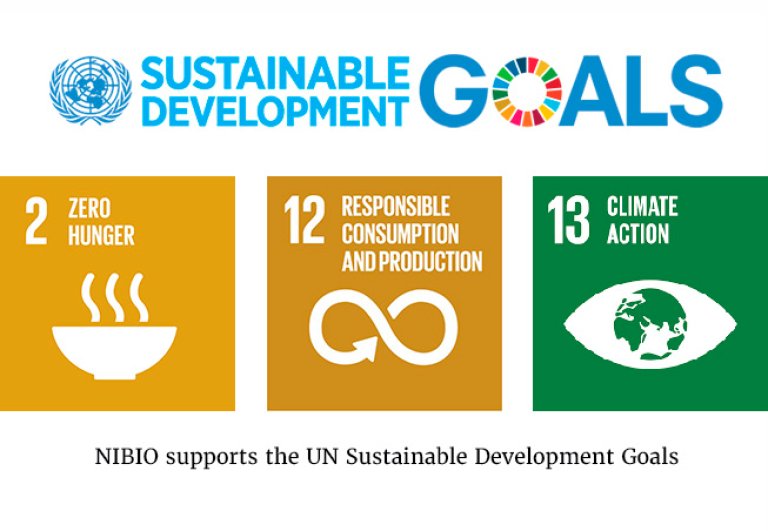
ClimaSoilHealth
The project Institutional capacity building on Sustainable Soil Health to improve adaptation and mitigation to Climate change in agriculture sector in Tanzania (ClimaSoilHealth) is in line with the Memorandum of Understanding signed between the Tanzania Agricultural Research Institute (TARI) and Norwegian Institute of Bioeconomy Research (NIBIO) in September 2023 at the Norwegian Embassy in Dar es Salam, and the “Agriculture for Development” of the Norwegian Government.
The project is funded by the Norwegian agency for development cooperation (Norad).
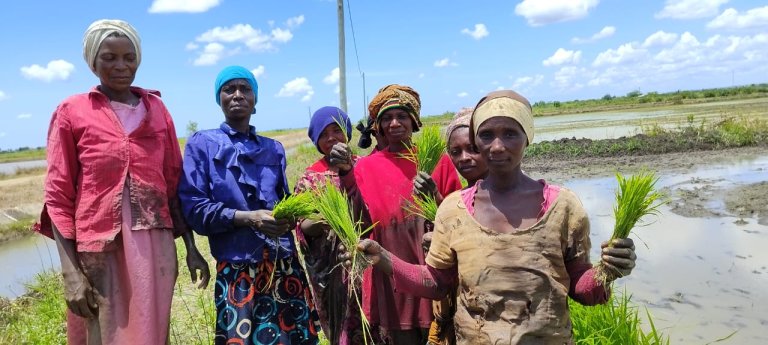
Contacts


